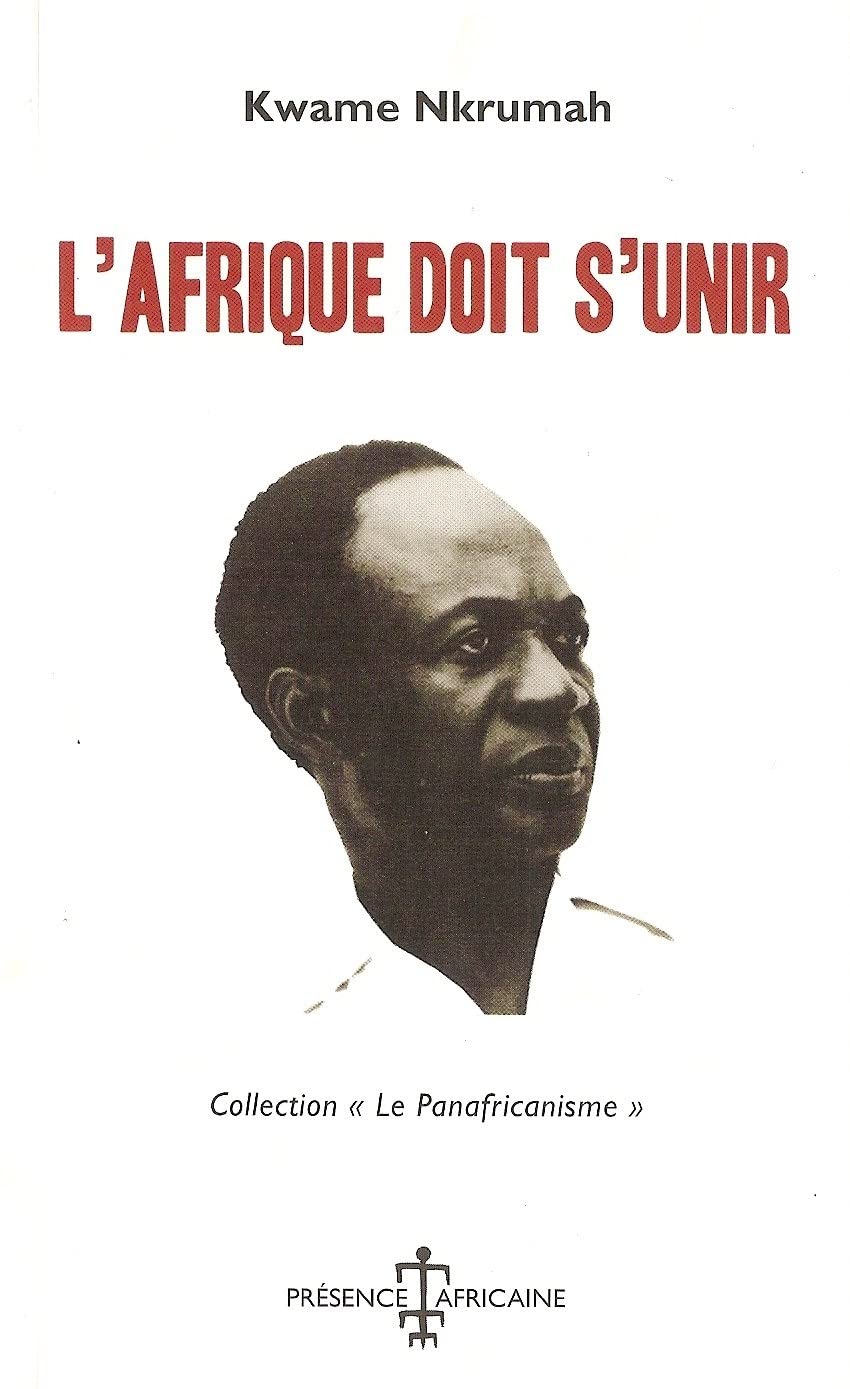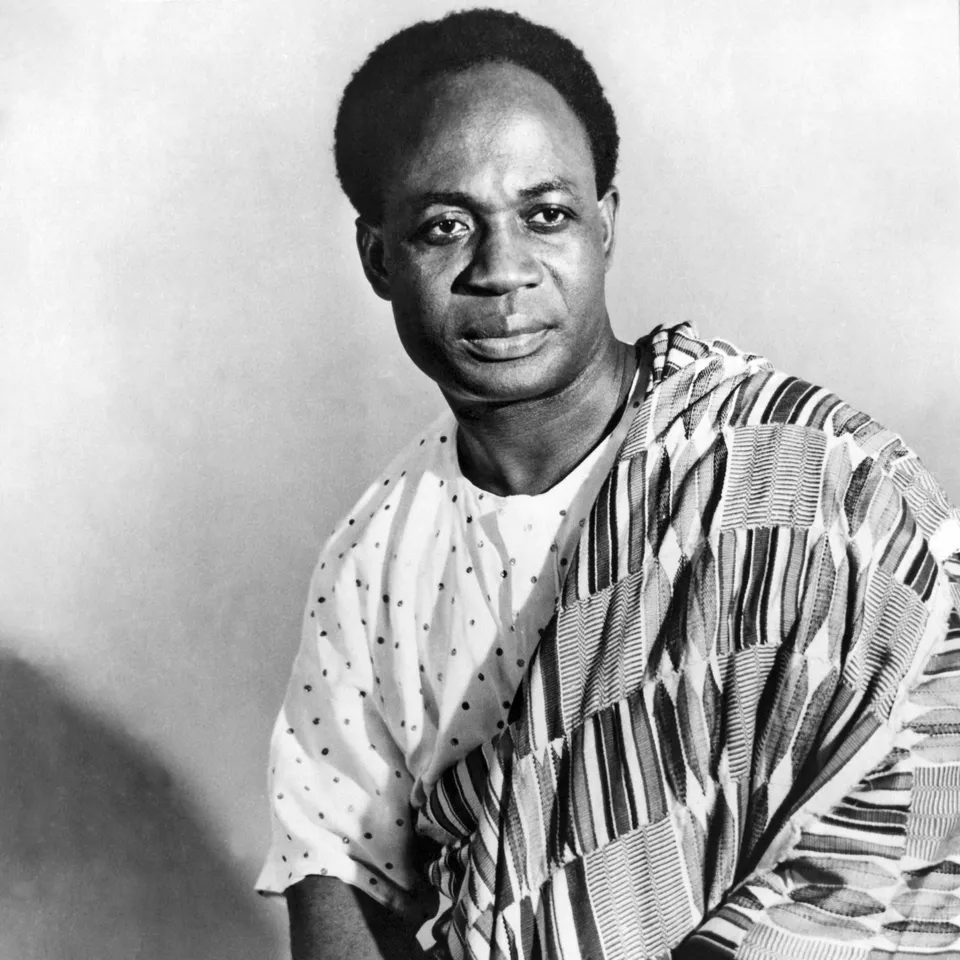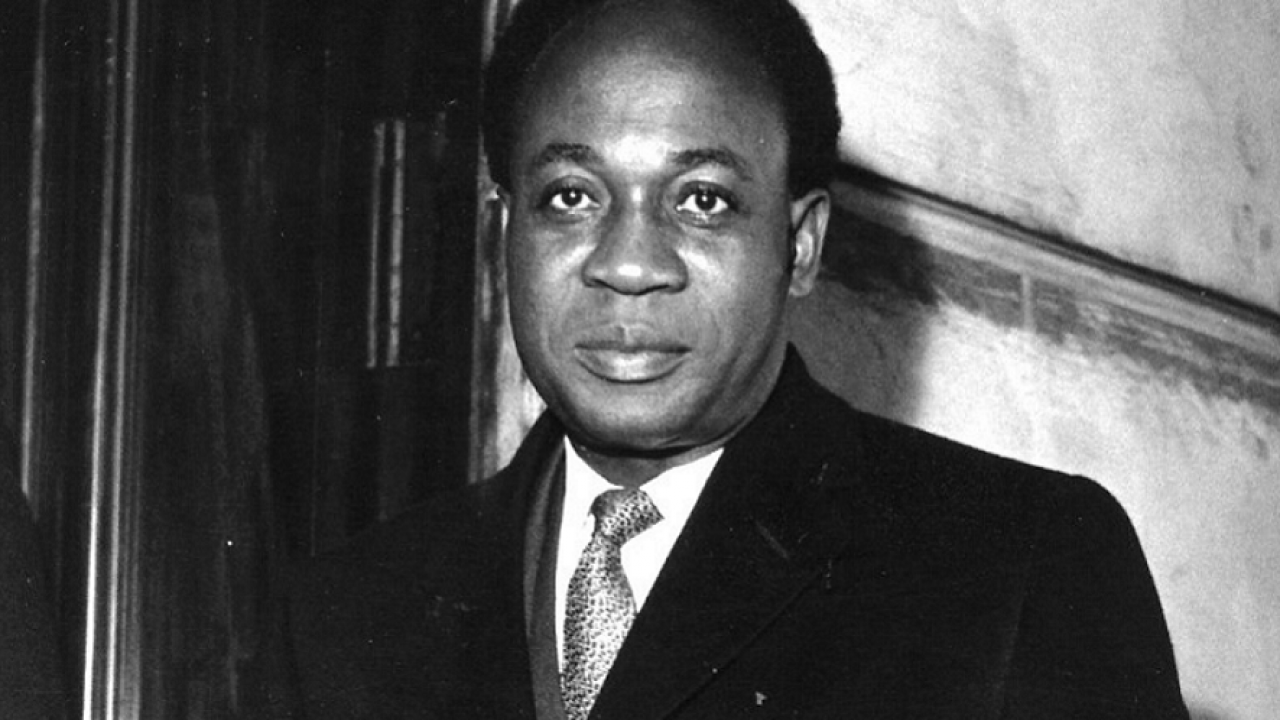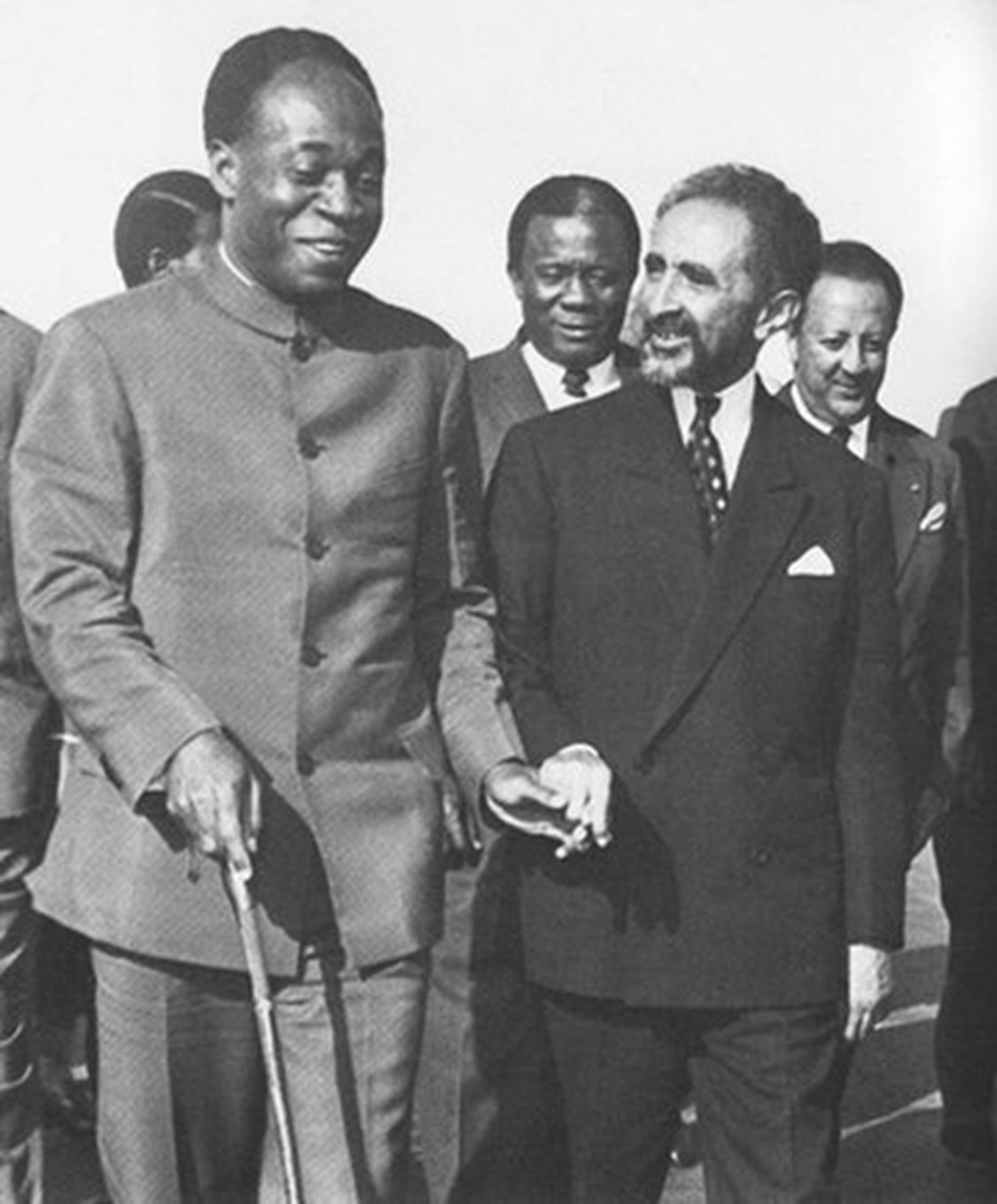Africa Must Unite is a passionate call by Kwame Nkrumah, the first president of independent Ghana, for a united and free Africa, liberated from colonial rule. Published in 1963, this visionary book remains an essential reference for understanding Pan-Africanism and the political and social challenges facing the continent.
In a global climate where questions of unity and national self-determination are gaining importance, Africa Must Unite by Kwame Nkrumah stands as a must-read. Published in 1963, this visionary book offers insightful analysis and a passionate plea for African unity in the wake of decolonization1. Through this review, we dive into Nkrumah’s mindset, exploring his compelling arguments for a united and economically independent Africa. Nofi not only provides a detailed overview of the work but also encourages our readers to discover for themselves the power and relevance of this text, which continues to resonate in contemporary discussions on Pan-Africanism2 and the future of the African continent.
Title and date of the work:

Africa Must Unite is a book written by Kwame Nkrumah, published in 1963. This political and historical work addresses the theme of African unity and decolonization. It has become a foundational text in Pan-African literature, reflecting Nkrumah’s vision for a united and independent Africa.
A short biography of the author and his major works:

Kwame Nkrumah (1909–1972) was a Ghanaian politician, leader of the Ghanaian independence movement, and the country’s first president after independence in 1957. He was a key figure in Pan-Africanism and played a major role in promoting African unity. His other important works include Consciencism: Philosophy and Ideology for Decolonization(1964) and Neo-Colonialism, the Last Stage of Imperialism (1965). Below is a simplified timeline highlighting the key moments in Kwame Nkrumah’s life:
- 1909: Kwame Nkrumah is born in Nkroful, Gold Coast3 (now Ghana).
- 1935–1945: Studies in the United States, where Nkrumah is influenced by Pan-African and anti-colonial ideas.
- 1945: Participation in the 5th Pan-African Congress in Manchester4, England, alongside W.E.B. Du Bois5 and George Padmore6.
- 1947: Returns to the Gold Coast and becomes involved in the independence movement.
- 1949: Founds the Convention People’s Party (CPP)7, a political party advocating for independence.
- 1951: Nkrumah becomes the first Prime Minister of the Gold Coast.
- 1957: The Gold Coast gains independence and becomes Ghana, with Nkrumah as its first Prime Minister and later President.
- 1960: Ghana becomes a republic with Nkrumah as its first President.
- 1963: Africa Must Unite is published, advocating for African unity.
- 1966: Nkrumah is overthrown in a military coup while visiting China.
- 1966–1972: Exile in Guinea, where Nkrumah continues to promote Pan-Africanism.
- 1972: Kwame Nkrumah dies in Bucharest, Romania.
Summary of Africa Must Unite:

This influential work, written by Kwame Nkrumah and published in 1963, presents his vision for Africa’s future in the post-colonial context. Nkrumah, then President of Ghana, argues for the political and economic unity of the entire African continent, considering it essential for prosperity, stability, and self-determination in the face of external influences and neo-colonialism8.
Nkrumah begins by analyzing Africa’s situation at the time, characterized by political fragmentation and economic dependence. He emphasizes that the colonial borders have divided the continent into small states, often too weak to be economically viable or to exert significant influence on the global stage. For Nkrumah, this division is a major obstacle to development and African unity.
The book also addresses the concept of neo-colonialism, where former colonial powers continue to control and exploit African economies despite the formal political independence of African nations. Nkrumah argues that African unity is the only way to effectively resist this form of domination and ensure autonomous economic development.
Nkrumah proposes concrete solutions to achieve African unity. He advocates for the creation of a federal government for all of Africa, with common economic policies and defense systems. He insists on the need for continent-wide economic development planning, with a focus on industrialization and self-sufficiency.
In short, Africa Must Unite is a call to action for African leaders and people. Nkrumah urges solidarity and cooperation to overcome ethnic, regional, and national divisions and to realize the vision of a united and strong Africa.
This book is considered a foundational text in Pan-African literature and remains relevant for understanding the challenges and aspirations of contemporary Africa.
Main themes:
African unity, Neo-colonialism, Economic development, African politics
Analysis and reflections on each theme:

Analysis and reflections on each theme:
- African unity: Nkrumah stresses the importance of African unity for the liberation and progress of the continent. He argues that without unity, African countries will remain weak and divided, unable to resist external influence or reach their full potential. Nkrumah envisions a political and economic African union, similar to a federation, that could defend the continent’s interests on the global stage.
“We, who are fighting for the unity of Africa, are fully aware of the goodwill of our intentions. We need the combined strength of our peoples and resources to protect ourselves from the imminent danger of a return of colonialism in a disguised form.
We need this strength to fight against entrenched powers that divide our continent and continue to keep millions of our brothers in slavery.
We need this strength to decree the total liberation of Africa and to advance the building of a socio-economic system that will allow the great mass of our ever-increasing population to reach living standards comparable to those of the most advanced nations.” — Africa Must Unite (1963), Kwame Nkrumah, ed. Présence Africaine, 2009, p. 329
- Neo-colonialism: Nkrumah addresses the concept of neo-colonialism, where former colonial powers maintain economic and political influence in Africa despite the formal independence of African nations. He warns of the dangers of this new form of domination, which hinders true development and autonomy for African nations.
“While here in Africa, where the goal of unity is inevitable, we are doing our utmost to concentrate our efforts in that direction, the neo-colonialists are using every means to counteract them by encouraging the formation of communities based on the linguistic identity of their former colonizers.
We cannot afford to be so disorganized and divided. The fact that I speak English does not make me an English citizen. Likewise, the fact that some of us speak French or Portuguese does not make us French or Portuguese citizens.
We are Africans, plain and simple; and as Africans, our highest interests can only be promoted through our union into an African community, which neither the Commonwealth nor a Franco-African community can replace. For us, Africa and its islands form a whole.
We reject the idea of any subdivision. From Tangier or Cairo in the north, to the Cape in the south, from Cape Guardafui in the east, to the Cape Verde Islands in the west, Africa is one and indivisible.” — Africa Must Unite (1963), Kwame Nkrumah, ed. Présence Africaine, 2009, p. 328
- Economic development: Nkrumah emphasizes the necessity of an autonomous economic development strategy for Africa. He advocates for the use of African resources for the benefit of Africans and suggests that economic unity is crucial for overcoming poverty and underdevelopment.
“Despite all opposition, open hostility, and machinations that undermined its success, despite the dreadful devastation and material and human losses caused by World War II, the Soviet Union managed, in just over thirty years, to build an industrial machine so powerful and advanced that it was able to launch Sputnik and, shortly after, the first manned flight into space. One cannot ignore that achievements of this magnitude were made possible by a system of continental planning, supported by clearly defined socialist-inspired programs, and it is an example I take as to what an integrated economic program could mean for Africa.” — Africa Must Unite (1963), Kwame Nkrumah, ed. Présence Africaine, 2009, p. 263
- African politics: Nkrumah explores the political challenges Africa faces in its quest for unity. He discusses the need to overcome ethnic and regional divisions and proposes the creation of Pan-African institutions to facilitate cooperation and integration.
“In a world divided into opposing fronts and warring factions, if Africa remains disunited, it can only succumb. Patrice Lumumba, who had seen and experienced firsthand the evils caused by disunity in the Congo, argued this point with great conviction when he came to Accra in August 1960. Perhaps not everyone knows that on that occasion, he expressed his willingness to work as closely as possible with other independent African states to create a union of African states. Differences between independent African states are not lacking. We have border disputes and a multitude of other inter-territorial problems that can only be resolved within the framework of African unity.” — Africa Must Unite (1963), Kwame Nkrumah, ed. Présence Africaine, 2009, p. 238
In Africa Must Unite, Nkrumah uses his expertise and experience as a political leader to offer a profound and pragmatic vision for Africa’s future. His advocacy for African unity remains a significant reference point for discussions on Pan-Africanism and the continent’s development.
Sommaire
Footnotes
- Decolonization: A historical process through which colonies gained their independence from European colonial powers, mainly after World War II. This movement was marked by a series of national struggles, political negotiations, and, in some cases, armed conflicts. Decolonization led to the redefinition of political borders, the emergence of new nation-states, and significant changes in international relations. It was influenced by various factors, including global shifts in attitudes toward imperialism, the evolution of colonial economies, and ideals of freedom and self-determination. Figures such as Mahatma Gandhi in India, Kwame Nkrumah in Ghana, and Nelson Mandela in South Africa were emblematic leaders of this movement. Decolonization also had a profound impact on colonial and postcolonial societies, often leading to political, economic, and social challenges. ↩︎
- Pan-Africanism: A political, cultural, and social movement that emerged in the early 20th century, promoting the unity and solidarity of African peoples and the African diaspora. It aims to encourage and strengthen the bonds of solidarity among all people of African descent, to fight against colonialism and neo-colonialism, and to promote self-determination and economic development in Africa. Key figures like W.E.B. Du Bois, Marcus Garvey, and later Kwame Nkrumah, were instrumental in promoting and evolving this movement. ↩︎
- Gold Coast: The former name of the region now known as Ghana in West Africa. The Gold Coast was a British colony established in the 19th century, known for its wealth in gold, hence the name. The region played a significant role in the transatlantic trade, notably in the slave trade. During the 20th century, the Gold Coast became a center of anti-colonial activism, leading to its independence from Great Britain in 1957. This independence, largely attributed to the leadership of Kwame Nkrumah, marked a turning point in the history of African decolonization, with the Gold Coast being the first sub-Saharan African country to gain independence from European colonial rule. The country was then renamed Ghana, referencing the ancient Ghana Empire, symbolizing a new beginning and a reconnection with pre-colonial African heritage. ↩︎
- 5th Pan-African Congress: A major event in the history of the Pan-African movement, the 5th Pan-African Congress took place in Manchester, England, in October 1945. This congress marked a decisive turning point in the Pan-African movement as it emphasized the struggle for independence and the end of colonialism in Africa. Key figures such as Kwame Nkrumah of Ghana, Jomo Kenyatta of Kenya, and W.E.B. Du Bois of the United States, along with other African and diaspora leaders, participated. The congress adopted a more radical and militant approach, calling for the immediate independence of African countries and the end of racial domination. The resolutions and discussions at this congress had a significant influence on the subsequent independence movements in many African countries. ↩︎
- W.E.B. Du Bois: William Edward Burghardt Du Bois (1868-1963) was an Afro-American intellectual, sociologist, historian, and civil rights activist. A pioneer in the study of African American issues, he was the first African American to earn a PhD from Harvard University. Co-founder of the National Association for the Advancement of Colored People (NAACP) and editor of its magazine The Crisis, Du Bois played a crucial role in the civil rights movement in the United States. He is also recognized for his involvement in the Pan-African movement, having organized several Pan-African congresses and promoting unity and solidarity among African peoples and the diaspora. His most famous works include The Souls of Black Folk and Black Reconstruction in America. In his later years, disappointed by persistent racism in the United States, he moved to Ghana, where he continued his work until his death. ↩︎
- George Padmore: Born Malcolm Ivan Meredith Nurse in 1903 in Trinidad, George Padmore was an influential writer, journalist, and political activist. He is recognized for his major role in the Pan-African movement and his commitment to anti-colonial struggles. Padmore worked closely with Kwame Nkrumah and played a key role in organizing the 5th Pan-African Congress in Manchester in 1945. His writings and activism greatly influenced independence movements in Africa and the Caribbean. Padmore is also known for his criticisms of Stalinist communism and his advocacy for African unity and self-determination. He died in 1959 in London. ↩︎
- Convention People’s Party (CPP): The Convention People’s Party (CPP) is a political party in Ghana, founded by Kwame Nkrumah in 1949. The CPP was created with the aim of fighting for the independence of Ghana, then known as the Gold Coast, from British colonial rule. Under Nkrumah’s leadership, the CPP adopted a Pan-African and anti-colonial approach, advocating for African unity and the emancipation of African peoples. The party played a central role in Ghana’s independence movement, which culminated in the country’s independence in 1957. After independence, the CPP became the dominant party in Ghana, with Nkrumah as its first president. The party implemented policies of economic and social development but was also criticized for its authoritarianism. The CPP was banned after the 1966 coup that ousted Nkrumah but was later rehabilitated and remains active in contemporary Ghanaian politics. ↩︎
- Neo-colonialism: A term used to describe a form of domination, often economic and political, exercised by former colonial powers or other external influences over independent countries, particularly in the postcolonial context. Neo-colonialism manifests itself through indirect control, where formerly colonized countries remain dependent on and influenced by developed nations despite their formal political independence. This influence can be exerted through various means, such as economic investments, loans, trade conditions, or culture. The term was popularized by Kwame Nkrumah in the context of postcolonial Africa to describe the continued exploitation and interference by former colonial powers in the affairs of newly independent nations. ↩︎
